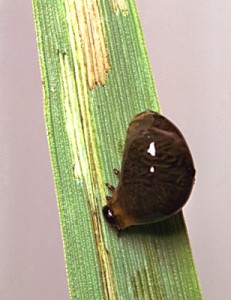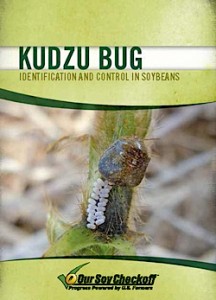
Heat exposure for agricultural laborers should be a consideration when working outside and even in non-airconditioned buildings. When a person’s ability to adapt to heat stress is exceeded, exposure can lead to reduced productivity, mistakes in job performance, increased workplace incidents, and/or heat-related illnesses. Each person’s heat tolerance varies and several factors including type of physical activity, fitness level, underlying health issues, temperature, sun exposure, air movement (wind), and humidity can dramatically impact the potential for heat stress. To determine the level of heat risk, employers should consider the job, the environment, and the worker.
Evaluate the Risk of Heat Stress:
Monitoring the environmental conditions during work times to make management decisions for workers is an important part of preventing heat-related illnesses. Temperature is not the only factor in implementing heat stress management. Humidity is another important consideration. The heat index is a measure of how hot it feels when the relative humidity is factored in with the actual air temperature.
An environmental heat assessment should account for the following factors: air temperature, humidity, radiant heat from sunlight or other artificial heat sources, and air movement. OSHA recommends the use of wet bulb globe temperature (WBGT) monitor to measure workplace environmental heat. OSHA provides this link to calculate the WBGT for a specific location. There is also a NIOSH/OSHA Heat App for Android and iPhone devices that uses the Heat Index as a screening tool.
Management Suggestions for Enhancing Heat Tolerance:
Acclimatization (to heat) is a process of adaptation that involves a stepwise adjustment to heat over a week or sometimes longer. An acceptable schedule for achieving acclimatization is to limit occupational heat exposure to one-third of the workday during the first and second days, one-half of the workday during the third and fourth days, and two-thirds of the workday during the fifth and sixth days. The acclimatization procedure should be repeated if a person misses workdays after days off due to illness, vacation, or other reasons for missing one week or more of job duties.
Fluid replacement:
Provide adequate drinking water for all employees. Recommend to employees they drink plenty of water before work shifts, during work, and after work. Simply relying on feeling thirsty will not ensure adequate hydration. To replace the four to eight quarts of sweat that may be produced in hot environments, people require one-half to one cup of water every 20 minutes of the workday. Potable drinking water kept at a temperature of 59°F or less is recommended.
Physical Fitness: Physical fitness is extremely important. The rate of acclimatization is a function of the individual’s physical fitness. The unfit worker takes 50 percent longer to acclimate than one who is fit.
Increasing Safe Work Practices:
To find management and guidance tools for determining whether to implement heat stress management plans refer to the CDC documents on Heat Stress and Work/Rest Schedules.
The following list of management options should be considered to prevent heat stress for workers:
- Limit exposure time. Schedule as many physical work activities as practical for the coolest part of the day (early morning or late afternoon). Employ additional help or increase mechanical assistance, if possible, to lighten individual workloads.
- Minimize heat exposure by taking advantage of natural or mechanical ventilation (increased air velocities up to 5 mph increase the rate of evaporation and thus the rate of heat loss from the body) and heat shields/shade when applicable.
- Take rest breaks at frequent, regular intervals, preferably in a cool environment sheltered from direct sunlight. Anyone experiencing extreme heat discomfort should rest immediately and be provided with first aid for heat stress.
- Wear clothing that is permeable to air and loose fitting. Generally, less clothing is desirable in hot environments, except when the air temperature is greater than 95°F or a person is standing next to a radiant heat source. In these cases, covering exposed skin can reduce the risk of heat stress.
- A buddy system may also be helpful. It depends on a fellow worker’s ability to spot the early signs of heat stress, such as irritability, confusion, or clumsiness. A ready means of cooling should be available in work areas where heat illness might occur.



 Unfortunately, as with many insect questions there is no easy answer. In some cases the colder temperatures will likely reduce populations of certain pests. Insects in the soil or under snow cover will have protection from extreme temperatures which will influence survival. Many insects migrate in over the spring from the south, so they were not here to experience our winter weather. Survival conditions for migratory insects are more dependent on their local over wintering conditions. It is difficult to generalize about the impact of cold temperatures on the crop pests we battle. There are influences of fall tillage, soil characteristics, snow cover and soil temperature that play a role.
Unfortunately, as with many insect questions there is no easy answer. In some cases the colder temperatures will likely reduce populations of certain pests. Insects in the soil or under snow cover will have protection from extreme temperatures which will influence survival. Many insects migrate in over the spring from the south, so they were not here to experience our winter weather. Survival conditions for migratory insects are more dependent on their local over wintering conditions. It is difficult to generalize about the impact of cold temperatures on the crop pests we battle. There are influences of fall tillage, soil characteristics, snow cover and soil temperature that play a role. 